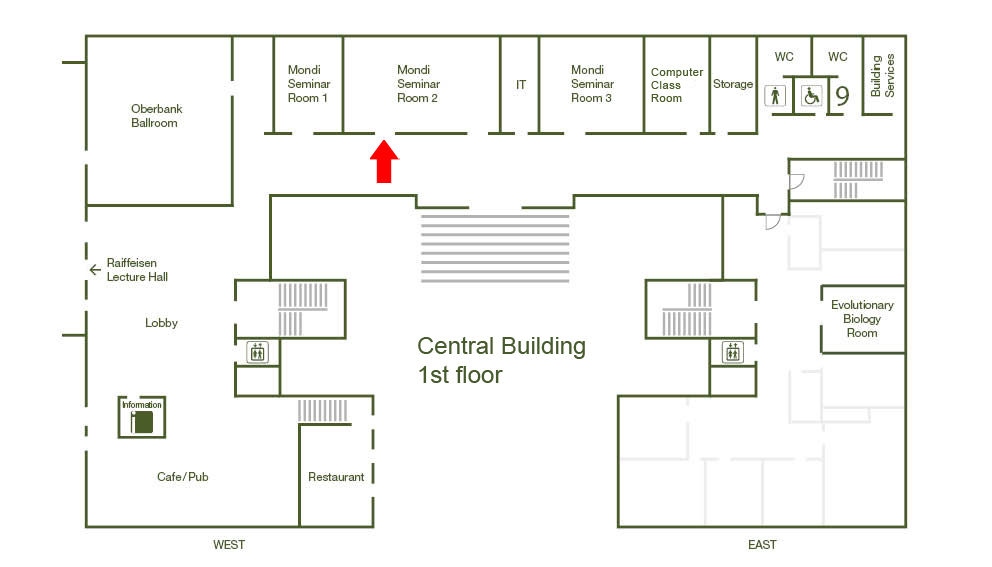NDT, Christopher Currin and Florian Schmidt

Speaker: Christopher Currin (Postdoc, Vogels group)
Title: Human cortical cultures and artificial models: Understanding individuals with epilepsy
Abstract
Artificial neural networks simplify complex biological circuits into tractable computational models to distil their essence and test our understanding. It is often said that the simplicity of artificial models undermines their applicability to real brain dynamics. Typical efforts to address this mismatch add complexity to increasingly unwieldy models. We instead use simplified cortical cultures with two cortical neuron types derived from human induced pluripotent stem cells (hiPSCs) to compare model and reality. Our approach of deriving neural networks from hiPSCs also allows us, for the first time, to directly compare neural dynamics of epilepsy patients and close family “control” members. We uncovered surprisingly variable network activity across cultures from families with a common genetic variant. We aim to explore this variability further by building data-driven models – “digital twins”, or artificial reproductions of each network – that allow rapid and reproducible probing of individuals’ dynamics. Furthermore, the digital twins suggest ex vivo perturbation experiments for further understanding of the individuals’ cultures and models.
Our research showcases a promising personalised medicine approach for the understanding and treatment of people with epilepsy. It does so by using data-driven modelling that starts to bridge an important theoretical-experimental neuroscience gap for advancing our understanding of human neuron dynamics.
Speaker: Florian Schmidt (PhD. Jösch group)
Title: Attentional Modulation of Neuronal Population Dynamics in the Superior Colliculus
Abstract :
Attention can be defined as a set of neuronal mechanisms necessary for adaptive and effective behavioural selection. This process also requires the ability to learn the value and meaning of a sensory event within a particular context. Experimental evidence has implicated the superior colliculus, a midbrain structure, and areas of the prefrontal cortex in attention, but the underlying neural mechanisms remain a black box. To study the underlying mechanisms experimentally in mice, I developed a modular behavioural training paradigm that involves (i) the learning of a reward-coupled stimulus and (ii) allocation of attention to specific spatial locations, which is verified by behavioural performance metrics. These experiments are paired with 2-photon imaging providing direct and continuous monitoring of the neuronal activity of the superior colliculus with reliably high spatial resolution. In this talk, I present the paradigm and my first results that indicate how reward association and trial performance are linked with neuronal population dynamics.